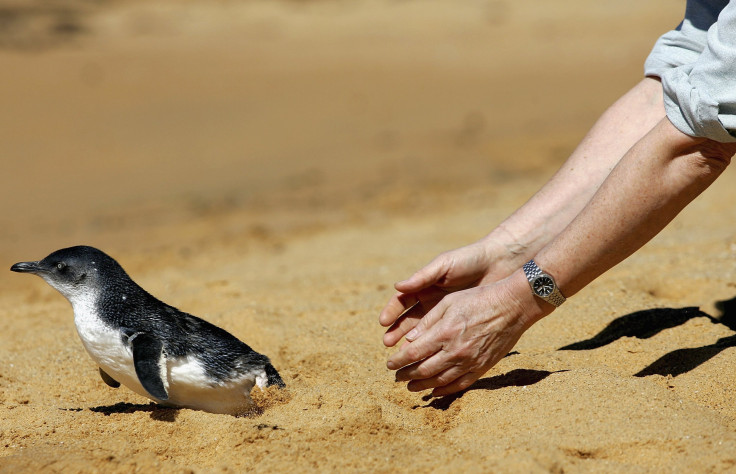Penguin Died On Brazilian Beach After Swallowing N95 Face Mask: Biologists
KEY POINTS
- A whole N95 mask was found tangled in its stomach
- Experts said marine animals tend to confuse medical wastes for food
- At least 113 “incorrectly discarded” masks were found on Sao Paolo beach between April 16 and Sept. 13
Brazilian biologists are trying to raise awareness about the consequences of the pollution caused by coronavirus-related medical waste after a penguin died from consuming a face mask which was discarded inappropriately on a beach.
The carcass of the Magellanic penguin was first recovered by a team from the Instituto Argonauta, a non-profit Coastal and Marine Conservation organization, on Juquei beach, located in Sao Sebastian, north of Sao Paolo.
Biologists found the animal's carcass covered in a lot of sand and during a necropsy which was performed subsequently at the “Stabilization Unit,” a black N95 face mask, worn as a protection against the coronavirus, was found tangled in its stomach, according to a statement from the institute.
Biologists believed the mask was thrown on the beach by one of the beach-goers during the Labor Day weekend. “The consequences of the large number of people who attended the beaches of São Paulo (Ubatuba, Caraguatuba, São Sebastião and Ilhabela) on the extended holiday of Sept. 7 are not over and this time it may have cost the life of a Magellan Penguin (Spheniscus magellanicus) whose cause of death is tied to a mask found inside his stomach,” the statement reads.
Penguin found dead on Brazilian beach after swallowing entire face mask during voyage from Patagonia, autopsy showshttps://t.co/XkU34OBHjU
— Daily Mail Online (@MailOnline) September 22, 2020
Marine animals are prone to consuming discarded masks and other medical wastes dumped in inappropriate places after confusing them for food. “This case is unequivocal proof that this type of waste causes harm and mortality in marine fauna, in addition to the irresponsibility of the person who dispenses a mask in an inappropriate place, as it is medical waste with risk of contamination from other people,” Hugo Gallo Neto, oceanographer and president of the institute, said in the statement.
Magellanic penguin starts migrating in colonies from Patagonia, Argentina, across South America in search of food in June after their breeding season is over. Aiming to build their nests, they generally settle in coastal areas and look for spots where vegetation can provide protective coverage. During their journey, most penguins get lost or end up emaciated.
Ever since Brazilian health officials started urging people to wear face masks in March, amid a sharp rise in COVID-19 cases, pollution caused by “incorrectly discarded” medical wastes on beaches started harming the marine life, the statement added. Brazilian biologists found at least 113 of used masks littered on the beaches of Sao Paolo between April 16 and Sept. 13.

© Copyright IBTimes 2024. All rights reserved.






















